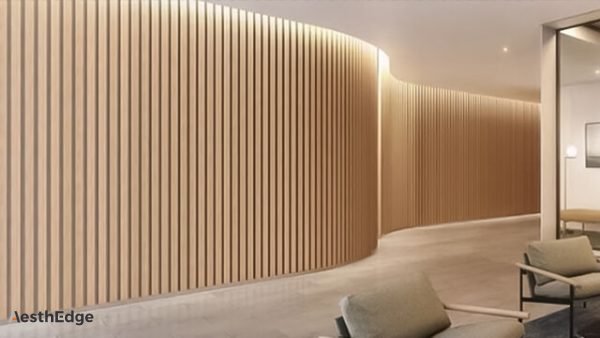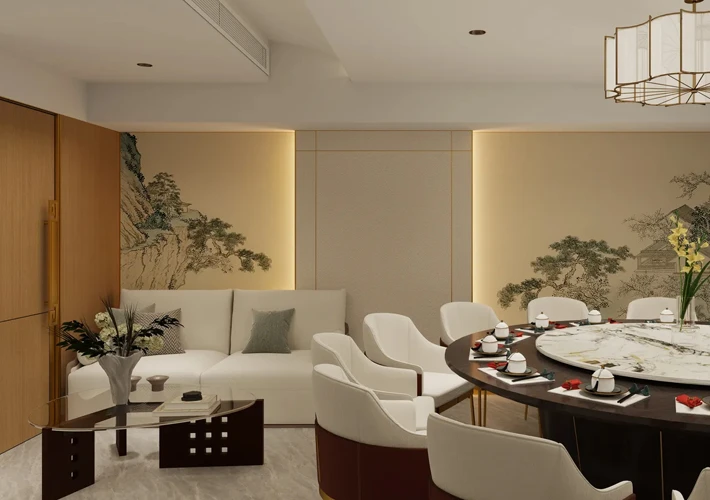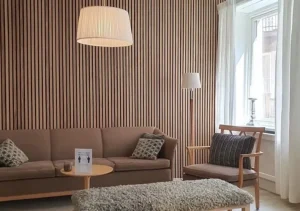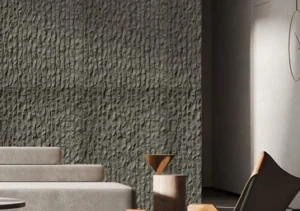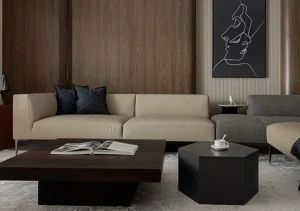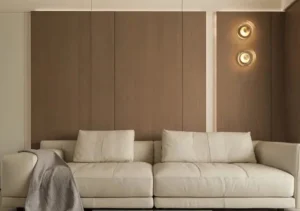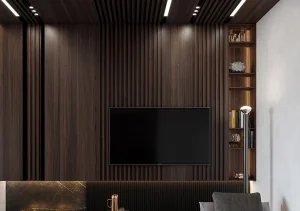In today’s competitive hospitality market, hotels are under increasing pressure to provide guests with not only comfort and functionality but also a unique and memorable experience. One of the most effective ways to achieve this is through whole house customization in hotel decoration. Unlike traditional off-the-shelf decoration and furniture solutions, whole house customization (also known as full-space customization or integrated customization) provides a comprehensive, tailor-made design and furnishing service that ensures aesthetic coherence, space optimization, and a high-end brand experience.
This article explores five major advantages of adopting whole house customization for hotel decoration, supported by industry trends and practical examples. Whether you are a hotel investor, interior designer, or decoration material supplier, understanding these advantages will help you make smarter business decisions.
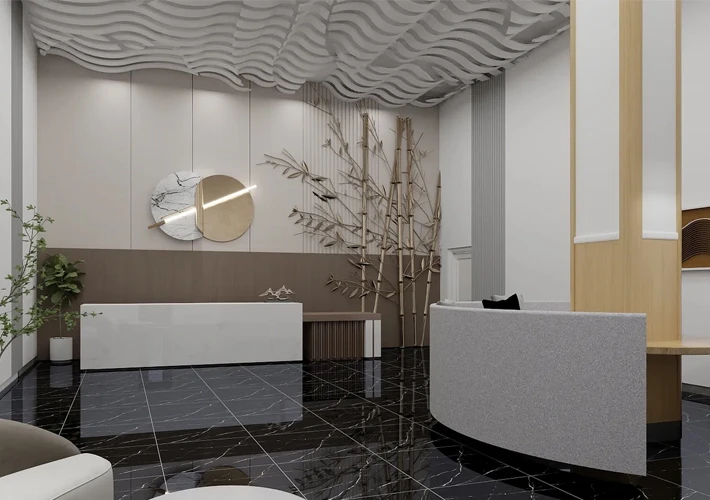
Table of Contents
ToggleEnhanced Brand Identity and Differentiation
Tailored Experience, Unique Style
In an era when guests are drawn to visually striking, Instagram-worthy interiors, whole house customization allows hotels to reflect their brand personality and cultural theme through every detail—from the wall panels and furniture to lighting, ceiling designs, and flooring materials.
Unlike standard solutions that can result in generic interiors, custom design ensures that no two rooms look alike unless intentionally designed that way. This is particularly valuable for boutique hotels and resort chains that wish to stand out in a crowded market.
Consistency Across All Spaces
From lobby to rooms, restaurants to conference halls, a unified design language strengthens brand coherence. For hotel chains, this consistent visual identity across locations fosters a sense of familiarity and trust among returning guests.
Case in Point
A five-star coastal hotel opting for a Mediterranean theme can have custom wall panels in ocean tones, marble-look PVC sheets with wave textures, and customized acoustic ceilings resembling traditional villas. The result? A deeply immersive guest experience that supports premium room pricing.
Efficient Space Utilization and Functional Design
Maximizing Usable Area
Hotels are constantly challenged to do more with limited space. Whole house customization incorporates space-planning strategies from the very beginning, allowing designers and manufacturers to create multi-functional furniture, concealed storage, and smart layout flows.
For example, a small hotel room can be equipped with a custom-built wardrobe integrated with a minibar and safe, saving space and improving convenience. Similarly, customized bed backdrops can double as decorative acoustic panels and ambient lighting.
Adaptability to Irregular Structures
Older buildings or uniquely designed hotel properties often have irregular room layouts. Standard furniture often doesn’t fit well, resulting in wasted space or awkward arrangements. Full customization ensures millimeter-precise fittings, turning every corner into a usable zone.
Smart Features Integration
With IoT and smart hotel systems becoming more prevalent, full-space customization allows seamless integration of smart locks, lighting systems, climate control, and entertainment interfaces without compromising the aesthetic appeal.
Improved Material Coordination and Quality Control
Unified Material Selection
With whole house customization, you get a holistic material palette curated to match the design and performance needs of each space. Whether it’s fire-resistant wall panels, water-resistant bathroom cabinets, or noise-absorbing ceilings, the customization team can recommend suitable materials with aesthetic harmony.
This avoids the mismatched textures and color clashes often seen when different suppliers handle different parts of the interior.
Factory-Driven Standardization
Many full-house custom projects involve direct cooperation with manufacturers, which ensures strict quality control, material certification (e.g., SGS, CE), and consistency between design drafts and final products.
Additionally, suppliers specializing in hotel projects often provide high-performance decorative materials like:
- PVC Marble Sheets (fireproof, waterproof)
- WPC Wall Panels (durable, eco-friendly)
- SPC Flooring (slip-resistant, scratch-resistant)
- Bamboo Charcoal Acoustic Panels (sound-absorbing, air-purifying)
These materials can be color-matched and surface-treated as needed to achieve unified visual results.
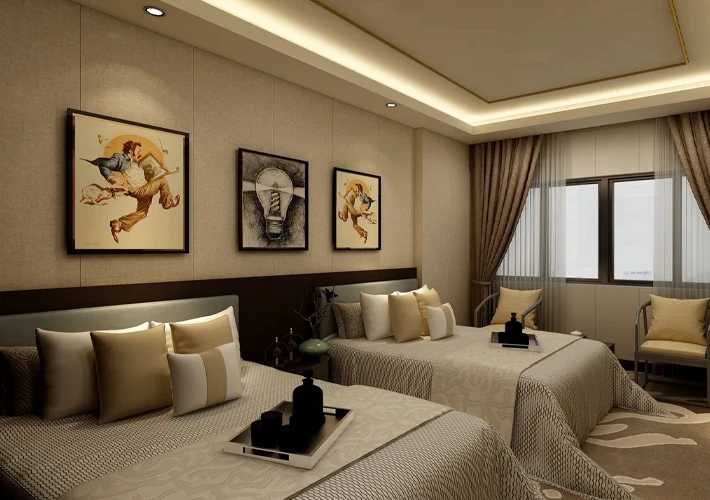
Streamlined Construction and Time Efficiency
One-Stop Production and Delivery
With a whole house customization solution, clients typically receive all furniture, decorative materials, and structural fittings from a single supplier or coordinated team, significantly reducing communication costs and minimizing delays.
Instead of juggling between 5–6 different suppliers, procurement managers can deal with one project manager, who oversees the progress from design to installation.
Pre-Fabrication and Modular Assembly
In many cases, components are pre-fabricated at the factory based on precise site measurements. On-site installation then becomes a fast and clean modular process—saving time, labor, and waste.
This is particularly useful for large-scale hotel renovations or fast-track openings, where tight project timelines are critical.
Cost Savings from Reduced Rework
Because all designs are approved and prototyped before manufacturing, the risks of mismatch, on-site adjustments, or reordering are drastically lowered—saving both time and money.
Higher ROI and Long-Term Maintenance Benefits
Durability Meets Design
Whole house customized furniture and decorative panels are typically built with high-traffic use in mind. Whether it’s scratch-resistant surfaces, moisture-proof panels, or anti-fungal coatings, the materials are chosen for both beauty and long life.
For instance, customized PVC marble sheets in bathrooms reduce the risk of mold, while WPC materials for headboards and panels ensure long-term color retention and wear resistance.
Lower Maintenance Costs
Standard furniture and finishes often require frequent replacement due to wear, poor fit, or outdated aesthetics. Customized materials and installations are generally more durable and easier to maintain, especially when they come with manufacturer warranties.
Some factories even provide after-sales service contracts, giving hotels peace of mind in terms of future maintenance.
Better Guest Satisfaction = Higher Occupancy Rates
Guests are more likely to leave positive reviews, return for future stays, and recommend the hotel when the interiors feel fresh, clean, and thoughtfully designed. This directly translates into better room rates, higher occupancy, and long-term profitability.

Conclusion: A Strategic Investment, Not Just Aesthetic Choice
Whole house customization is not just a decorative trend—it’s a strategic decision for modern hotels seeking efficiency, brand value, and high return on investment.
Summary of the Five Advantages:
| Advantage | Description |
|---|---|
| 1. Brand Identity | Helps hotels differentiate with consistent and unique design |
| 2. Space Efficiency | Optimizes every inch with smart, functional design |
| 3. Material Coordination | Ensures aesthetic harmony and performance-driven material use |
| 4. Construction Efficiency | Simplifies supply chain and shortens project timelines |
| 5. ROI & Maintenance | Delivers long-term value through durability and guest satisfaction |
With advancements in factory production and design software, many manufacturers now offer highly efficient B2B full-space customization services for hotel projects around the world. As a result, hotel developers no longer need to choose between creativity and control—they can have both.
If you are planning a new hotel or upgrading an existing one, now is the time to consider whole house customization. The benefits go far beyond looks—they directly impact your brand competitiveness, cost control, and operational excellence.

